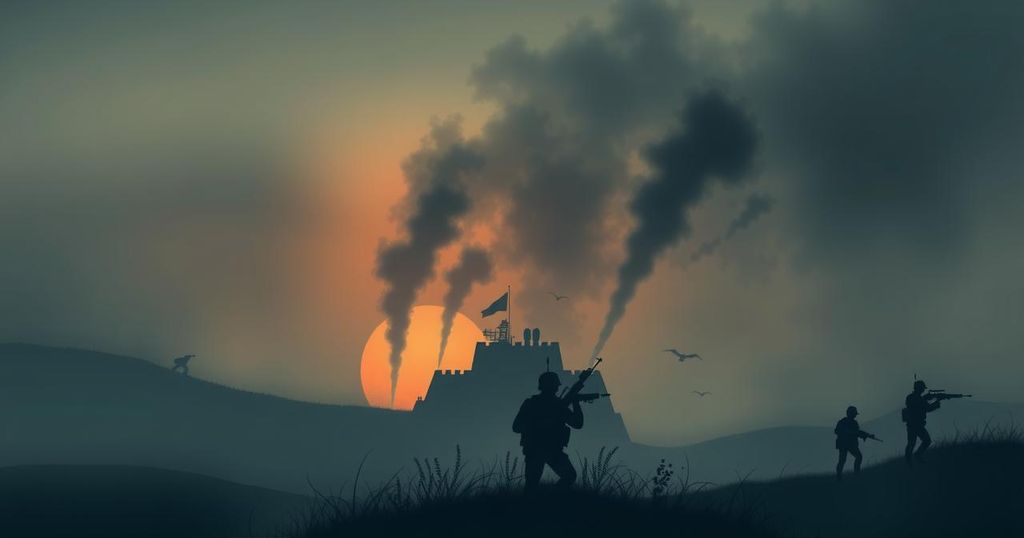Ukrainian Forces Capture North Korean Soldiers: A Human Perspective on Conflict

Ukrainian forces captured two North Korean soldiers in January 2023, revealing North Korea’s involvement alongside Russian troops in the Ukraine conflict. The captures confirmed prior allegations by Ukraine, South Korea, and the U.S. regarding North Korean military presence in the region. The encounters highlighted the soldiers’ vulnerabilities and the harrowing experiences they faced during intense combat situations.
In January 2023, Ukrainian forces captured two North Korean soldiers during separate engagements, marking a significant indication of North Korea’s involvement in the ongoing conflict with Russia. The young captives, exhibiting a readiness to sacrifice themselves, raised curiosity among their Ukrainian captors. This event corroborated longstanding claims by Ukraine, South Korea, and the United States that thousands of North Koreans were fighting alongside Russian troops, a situation Moscow has not publicly acknowledged.
One captured soldier was reportedly abandoned during conflict in a perilous area known as the gray zone. Ukrainian special forces, motivated by a prior aspiration to capture a North Korean soldier, saw an opportunity when drones identified three soldiers in distress. Despite being under fire, the Ukrainians managed to reach the last wounded soldier, who was in a state of disorientation, retaining only a grenade that the special forces commander discreetly removed before providing aid.
The encounter revealed the young soldier’s vulnerability: despite his military training since the age of 16, he exhibited fear and confusion. Engaging with the captive, a Ukrainian soldier offered him water and a cigarette, establishing a rapport as the North Korean called them ‘brothers.’ This emotional connection persisted as they evacuated him while evading a barrage from Russian forces, concluding a tense eight-hour operation.
On the same day, another North Korean soldier was captured following a protracted assault on Ukrainian positions. Ukrainian paratrooper Maksym Didorchuk recounted the chaos of battle, which continued for hours. Amidst the conflict, a reconnaissance drone identified a solitary soldier behaving erratically, leading Ukrainian forces to approach him with caution, unaware initially of his North Korean identity.
Upon closer inspection, Didorchuk and his colleague found the soldier injured and confused. He ultimately relinquished his grenade and knife, displaying a lack of understanding regarding his fate. When awaiting transport, he expressed distress, even attempting to harm himself, indicating the psychological toll of his situation, possibly influenced by the North Korean military’s policies against capture.
Subsequent investigations by Ukraine’s security service revealed that one soldier carried a Russian military ID, indicating potential manipulation in his deployment, as he believed he was training in Russia rather than fighting in Ukraine. This incident not only highlights North Korea’s involvement in the conflict but also illustrates the human struggles faced by soldiers caught in this war.
The involvement of North Korean troops in the ongoing conflict in Ukraine is documented through multiple sources, including insights from Ukrainian military personnel and intelligence reports. For months, the Ukrainian government, alongside South Korean and U.S. authorities, raised concerns about North Korea’s military engagement in Ukraine, particularly in assisting Russian forces in combat operations near the border. The recent capture of these soldiers offers explicit evidence of North Korea’s direct participation, though Russia has consistently refrained from acknowledging this connection. Understanding the dynamics of their recruitment, training, and deployment sheds light on the complexities of international military engagements during this conflict.
The capture of two North Korean soldiers by Ukrainian forces not only serves as poignant evidence of North Korea’s involvement in the Ukraine conflict but also unveils the broader implications of this phenomenon. These events underline the realities faced by soldiers on both sides, grappling with the harshness of war, national loyalty, and survival instincts. The psychological impacts on soldiers captured from different nations reflect the chaotic nature of modern warfare, where alliances are challenged, and human connections emerge even amidst conflict.
Original Source: www.washingtonpost.com







